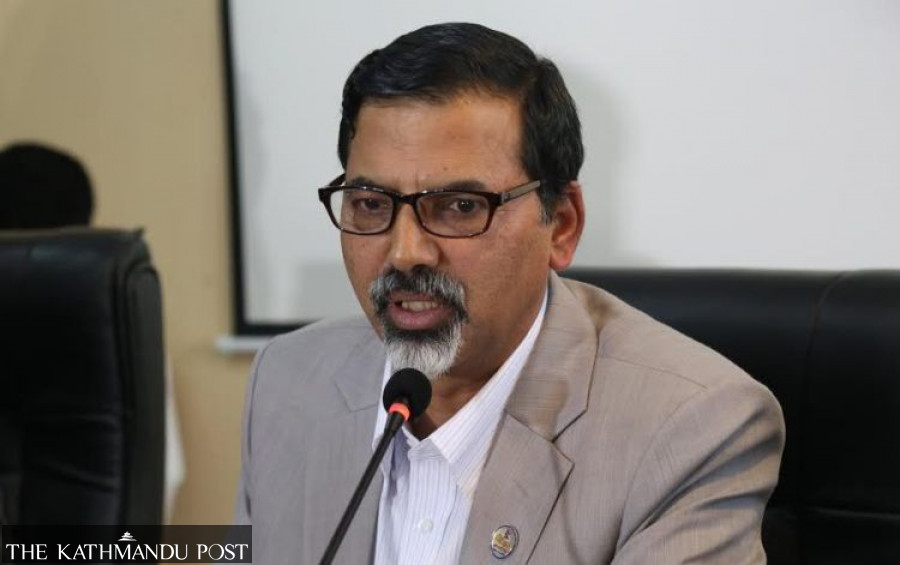Editorial
It’s the economy, stupid
You don’t need a weatherman to know which way the wind is blowing.
Eight months into the fiscal year, Nepal has already spent Rs1.31 trillion to import goods and services, while export earnings are at a meagre Rs147.74 billion. That’s a trade deficit of an alarming Rs1.16 trillion, even with the country’s record export figures. It doesn’t take an economist to figure out that the economy is in crisis when we are spending more than what we are earning or when the liquidity crunch is felt across the financial sector, among other unfavourable economic indicators that present an ominous threat to the country.
It is sheer lunacy on the part of Finance Minister Janardan Sharma who hasn’t once acknowledged Nepal’s manifold vulnerabilities, given the rising prices of food, fuel and other goods, further hit by Russia’s war in Ukraine. The minister has not only failed to fulfil his primary job of salvaging the economy, but also turned valid concerns of a manageable situation into an unnecessary political debate with his unsubstantiated statements of economic growth and outright lies despite soaring retail inflation and hard-hitting central bank data that shows just how bad the economy is.
Worse, the minister’s move against Nepal Rastra Bank Governor Maha Prasad Adhikari on the charge of leaking sensitive information and not fulfilling his responsibilities following a series of tussles between them put the spotlight more on the minister’s incapabilities and inexperience. The Maoist minister is now embroiled in a controversy surrounding his alleged role in instructing the central bank to release the Rs400 million that is under probe by Nepal’s Department of Money Laundering Investigation. It just goes to show to what extent the minister, who has publicly and repeatedly expressed his grievances against the governor, is willing to go, and in the process, has become a subject of investigation into money laundering.
While the minister may have defended his move by claiming he was facilitating foreign direct investment, it is clear that his diktats and kangaroo handling of a public institution is a direct attack on the central bank's autonomy. Unacceptable as it is, this interference in the agency responsible for the nation’s economy follows a series of attempts by political parties to weaken the foundations of democracy. This raises many questions, not just about one minister but about the entire cohort of politicians across political parties who bend the laws of the land to exploit their interests or hold onto power by any means necessary.
The interlocutory order by the Supreme Court on Tuesday, considering the economic situation of the country, is welcome and brings a much-needed reprieve, albeit temporarily. The burden of proof still lies with the finance minister now that the governor has resumed his duties from Wednesday following the court order. The moral onus now lies on the minister to pave the way for a capable person to handle the Finance Ministry that will work with the central bank to set realistic steps to address the looming crisis. The prime minister must not hesitate to show him the door if he is oblivious to moral standards as he is with his unattainable 7 percent economic growth.




 18.12°C Kathmandu
18.12°C Kathmandu














